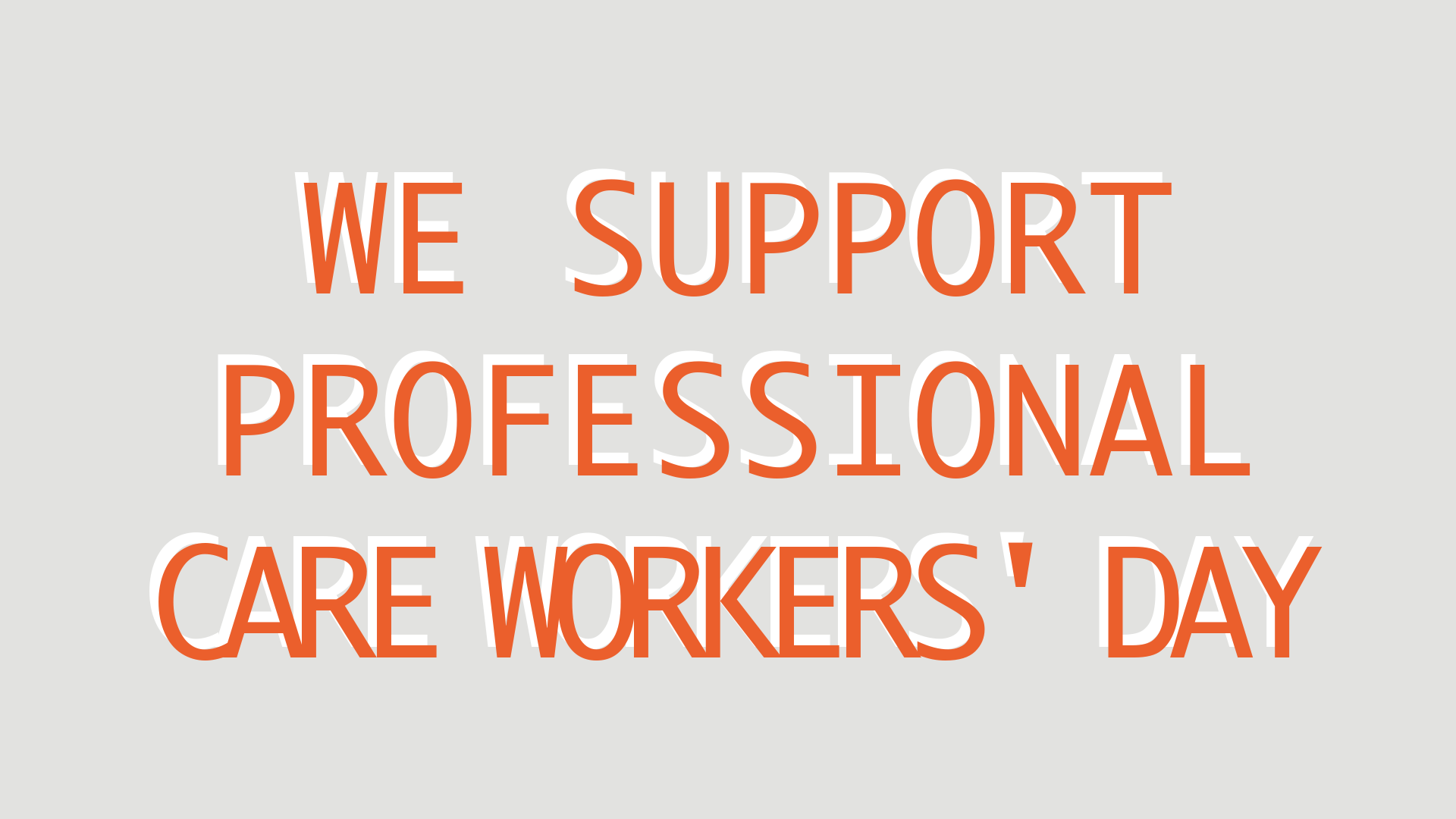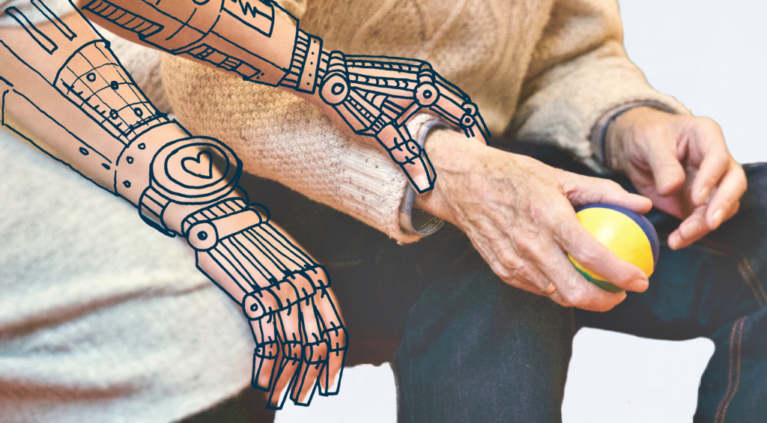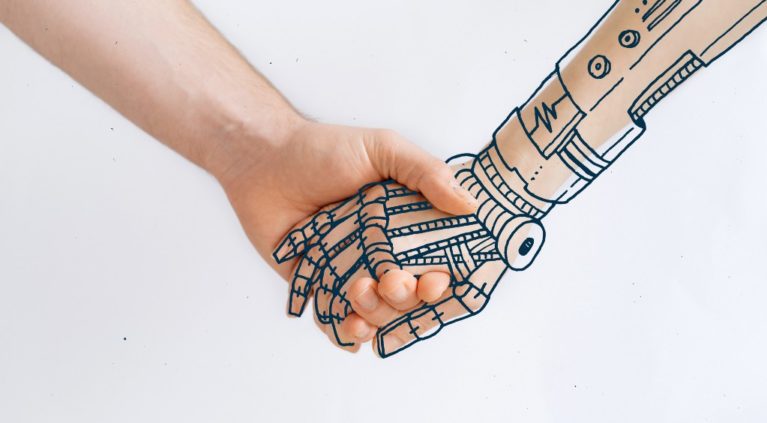Supporting care professionals is critical to a better care future
Last week, Doteveryone’s Programme Manager Lydia Nicholas, attended NACAS’ Festival of Well-being of Care Workers to celebrate Professional Care Workers’ Day.
Here she explains why supporting care workers becomes even more vital in an age of automation.
Doteveryone champions responsible technology for a fairer future. Our Better Care project, started towards the end of last year, set out to understand the necessary conditions for new technologies in care to support a more sustainable, effective, and fair care future.
Our upcoming report, Better Care in the Age of Automation, that we publish later this month, outlines three things it is possible to do, without significant financial investment, to achieve this; a long-term investment in better data, more relevant skills, and empowered communities.
Practically, to invest in more relevant skills, we recommend the establishment of a Royal College for Carers. This would have the resources to professionalise the workforce and offer flexible, practical and distance learning. It should offer structured career progression, and enable care professionals to supplement their existing skills of emotional intelligence, creative and compassionate problem solving, with the capacity to use and support new care technologies.
The promise of technology to improve care
In recent years there has been much excitement in the media about technology saving the care sector from its many challenges; the lack of funding, the growing global shortage of staff, and even preventing us getting sick or disabled in the first place.
“With the support of data analytics a robot could intervene proactively in a range of assistive scenarios such as medicine adherence, nutrition and rehabilitation support, as well as social engagement.”
UK Robotics and Autonomous Systems Network
A personal robot assistant can sound like a dream come true, and when a press photo from Japan hits the front page of BBC News we may be tempted to believe one is about to arrive at our front door. But the idea that robots will soon replace human carers is based on a misunderstanding of the complexity of what care professionals do. It is not just insulting – based on the assumption that because the work is low paid, it must be low skill – but also dangerous by contributing to the pressure on underfunded councils to force untested products and services on vulnerable people.
Where technology can’t care
Many studies of the impact of automation on work agree that care work is “unpredictable” and emotionally complex and thus “technically difficult to automate.”
This complexity becomes obvious when we pay attention to the realities of care on the front line. The job of reminding someone to take their medication involves a lot more than the task of saying “time to take your medication”. It may involve convincing someone with dementia, who is confused and distressed, that their medication is safe. It likely involves finding the pills and a glass of juice or putting together bite to eat should the medication need to be taken with food. It could also include checking they have actually swallowed a medicine they resent taking. In the best cases it can involve working together to understand and overcome barriers to taking medications on time.
The job of dressing someone isn’t necessarily going to be something which can be resolved with the right Wallace and Gromit device. It more than likely involves navigating pain and avoiding injury, making sure the clothes won’t rub or constrict blood flow, and maintaining the dignity of an adult in a vulnerable situation.
Where technology is improving care
But also, in the course of our research we saw examples of technology making an enormous difference in social care; improving the lives of people who received care and support, in reducing time spent on admin, in coordinating large teams and complex support packages.
The common thread to these successful implementations? All of them involved frontline professionals in the process of design, or drew on research or experience of that frontline. They made space for the unpredictability of care, and supported human problem solving, rather than forcing people to contort themselves to fit a rigid, unsuitable schema.
And Professional Care Worker’s Day is a wonderful chance to reflect on the experiences of care professionals today, and the place they have in building a better care future.
The Festival of Well-being of Care Workers
For the day, NACAS celebrated the amazing care work professional care workers do with the Festival of well-being of care workers. The day was an important mix of insight and practical solutions. As well as self-massage workshops to help care professionals cope with the high rate of injury, and nutrition workshops to help people stay healthy over unpredictable shifts, we heard about the cost to companies of neglecting staff welfare in turnover, agency costs, and lower quality efficiency, with statistics from Judgement Index.
I was pleased to hear the day’s speakers continue to draw connections between high level strategy and the reality on the front line. Martin Green, Chief Executive of Care England, for example, drew attention to the complexity and sensitivity of defining success in the highly individualised world of care. Could a fall in fact be a marker of success, if it indicates that someone who was bedridden last month is now well and motivated enough to walk? He also called for a focus “people and outcomes, not systems and organisations” – a change we agree with and champion in Better Evidence for Better Care, and in our upcoming report Better Care in the Age of Automation. And Vic Rayner, Executive Director of the National Care Forum, reminded the room that any investment in technology needed to be accompanied by investment in confidence and competence across the sector – amongst decision-makers and those using technology on the ground. Doteveryone’s proposal for a Royal College of Carers echoes this call and provides a practical way to achieve it.
But there was also a telling moment in the event when, asked by the speaker for positive stories of technology in care, not one of the care professionals in the audience could. All of the stories were negative; about technology being used to spy on them and lock them into unforgiving, rigid schedules.
“If you leave an appointment thirty seconds early you’re punished, if you take ten minutes extra for an appointment so leave late you aren’t paid for that time. If that longer appointment makes you late for the next appointment you face another penalty!”
To stop these experiences being the norm, we need a profound culture shift. We will all, at some point, come to rely on care. So not only for the good of the workforce, we need to do more to share positive stories about care work. We learned at Professional Care Worker’s day that 44% of people join the care workforce because “a friend or family member told me about it”. Because their stories showed how rewarding and enjoyable the work can be. NACAS, in particular with Professional Care Worker’s Day, is doing important work by publicly praising, championing and thanking care workers. It’s now time for the rest of the sector and society to step up to match it.
We will be publishing the full report, Better Care for the Age of Automation, on Monday 23 September. Make sure you’re signed up to Doteveryone’s mailing list and follow us on Twitter to stay informed.



